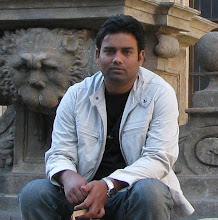Statistics:
Release Year – 1961
Director - Stanley Kramer
Running Time - 186 minutes
IMDB Rating – 181 among top 250 (8.3/10)
AFI Rating – 10th the top ten in courtroom drama category
Awards – Academy award for Best Actor, Best Writing, Best Screenplay Based on Material From Another Medium
Summary:
This movie is set in Germany in the time of 1947 when a trial was going on in which four judges of the Nazi period were convicted. A judge, Judge Haywood, from US is called to sit in this trial. It is quite an interesting and compelling scenario where a judge sitting on a bench judging about other judges revolutionizing the courtroom drama genre. One of the convicts, Ernst Janning, was portrayed as very prominent personality of his time. He has written books on law and taught in universities. He is said to stand for justice always. The defending counsel is going to use this character of Ernst Janning in his defense. Judge Haywood got interested in this, Ernst Janning, personality. Haywood read the books wrote by him to understand him more. Is Haywood getting influenced by this? How a judge can save himself from influence of external factors, and if not will these external factors influence his decision? This movie is all about this dilemma and fight. Haywood met a German lady, who was previous owner of the house in which he is staying now. He liked the company of this lady and started going out with her to plays and social evenings. This lady told Haywood how kind and good is Ernst Janning and how much all Germans love him.
In between all this, defense counsel put forward one point for debate. Ernst Janning disliked Hitler however he accepted the chief justice post in his regime. He could have rejected this post as well. Now whose move will be appreciated, one who rejects and stay away from all it or the one who goes inside the system and tries to clean and correct it. Quite intriguing, isn’t it, yes surely. Quite hard to answer this, and much depends upon circumstanced from my perspective.
Another twist came, when prosecution counsel showed a video on the brutalities inside the concentration camp. Everybody would get disturbed and angry when you see such a video. It was shown to get the similar effect on the judges from prosecution’s side. Defense counsel said that whatever was happening in those camps, ordinary German person was unaware of it all. Ernst Janning kept his silence throughout the case, until at a point where he stood and talked. What made him stood up and talking? Initially he was against this trial so he kept silence as his pride, but then he spoke and spoke well.
Now Haywood is in quite confused state, he has got quite an influence from external factors for the goodness of Ernst Janning. To make situation worst, USA government wants to acquit all the judges to win the heart of German people otherwise if they keep executing people then this would help Russia to gain over USA in Germany. What will Haywood do now? Will he pass all non-guilty, or he will pass Ernst Janning non-guilty and other 3 guilty, or all four guilty? Will he keep the wish of his lady friend? Will he keep the wish of his USA government?
Can you guess what could have happened by the last two dialogues between Ernst Janning and Haywood, given below.
Ernst Janning -…..By all that is right in this world...your verdict was a just one. Thank you. What you said in the courtroom, it needed to be said. Judge Haywood...the reason I asked you to come...Those people...those millions of people...I never knew it would come to that. You must believe it.
Haywood - Herr Janning...it came to that the first time you sentenced a man to death...you knew to be innocent.
Enjoy watching the movie. I put this DVD at 12 midnight and thought that I would see in two parts, but I finished this in one shot. The story is quite compelling and interesting as well.
Subscribe to:
Post Comments (Atom)
 dgement of
dgement of
No comments:
Post a Comment